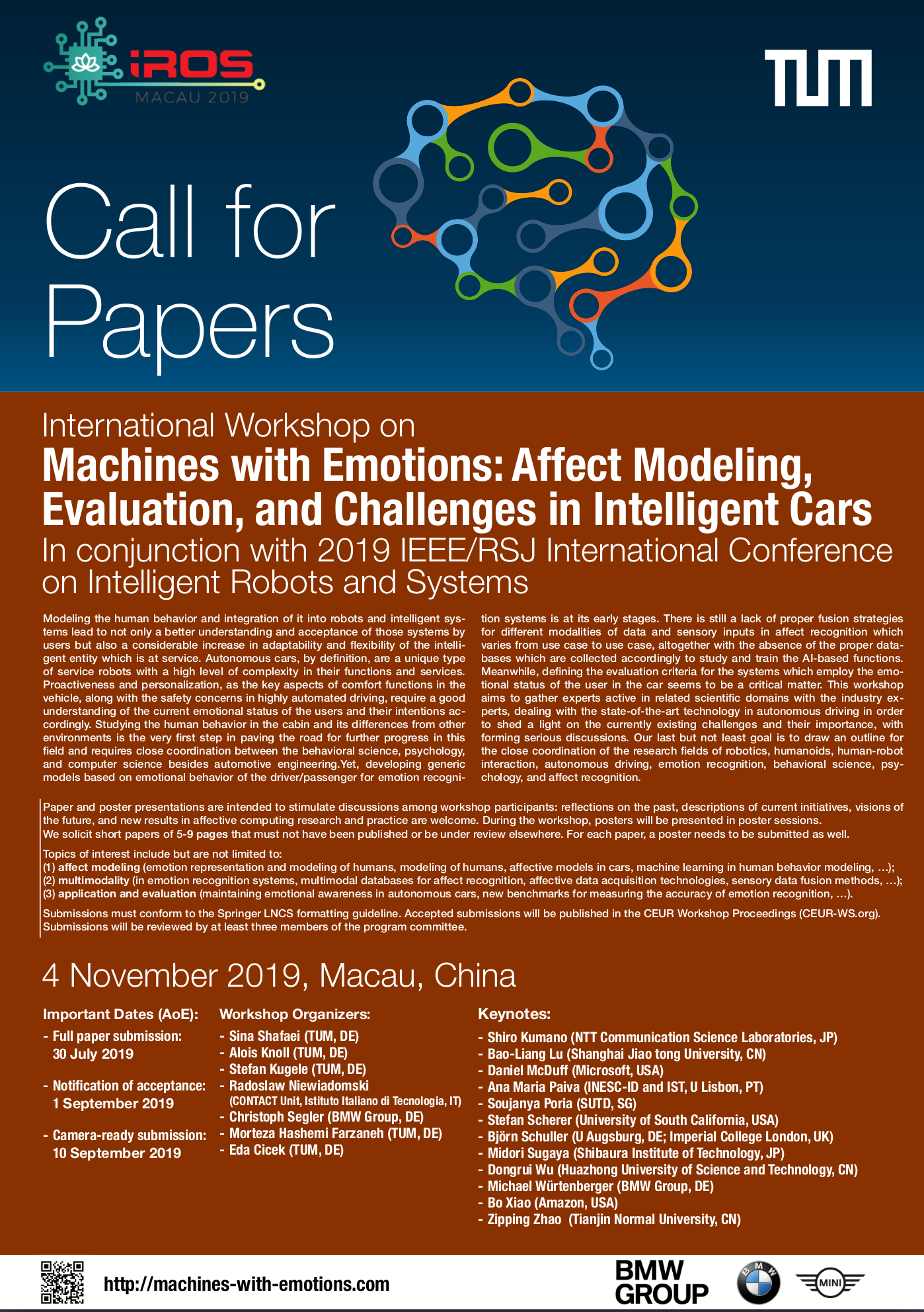Important Dates
Full paper submission deadline: 31 July 2019 7 August 2019 (extended)
Notification of acceptance: 1 September 2019
Camera-ready submission: 10 September 2019
Call for Papers
Paper and poster presentations are intended to stimulate discussions among workshop participants: reflections on the past, descriptions of current initiatives, visions of the future, and new results in affective computing research and practice are welcome. During the workshop, posters will be presented in poster sessions.
Submission will be through EasyChair: https://easychair.org/conferences/?conf=mwe19
Download PDF
We solicit only short/position papers of 5-9 pages representing novel ideas and preliminary results, that must not have been published or be under review elsewhere. Submissions must conform to the Springer LNCS formatting guideline (proceedings template). Submissions will be reviewed by at least three members of the program committee and accepted papers, in case of reaching the minimum acceptable numbers, will be published in the CEUR Workshop Proceedings (CEUR-WS.org).
Topics of interest include but are not limited to:
1- Affect Modeling:
- Emotion representation and modeling of humans
- Modeling human behavior according to the emotional state
- Embedding affective models in cars
- Machine learning in human behavior modeling
2- Multimodality:
- Multimodality in emotion recognition systems
- Multimodal databases for affect recognition
- Affective data acquisition technologies
- Approaches to obtaining reliable ground truth and affective data
- Approaches to annotating and mapping the expressive behavior to emotional states
- Sensory data fusion methods and approaches for emotion recognition systems
3- Application and Evaluation:
- Maintaining emotional awareness in autonomous cars
- New benchmarks for measuring the accuracy of emotion recognition
- Emotionally Intelligent Personal Assistants for self-driving cars
- Preserving privacy in developing multimodal databases
- Approaches to evaluating the robustness of the emotion recognition systems
